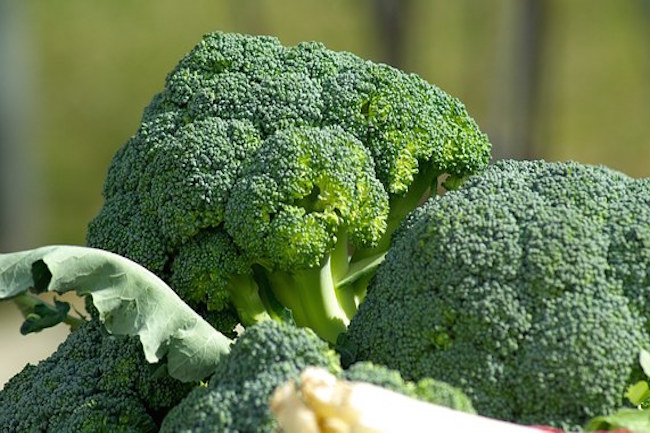How Sulforaphane in Broccoli May Benefit Those With Schizophrenia, Autism and Alzheimer’s by Dr. Joseph Mercola for Mercola
Science has proven time after time that food is potent medicine. Broccoli, for example, has a solid scientific foundation showing it’s one of the most valuable health-promoting foods around. While it contains several health-promoting compounds, one of the most widely studied is sulforaphane.
The cancer-fighting properties of sulforaphane are perhaps the most well-known, but it has also been shown to benefit your heart and brain, boosting detoxification1 and helping prevent and/or treat high blood pressure,2 heart disease, Alzheimer’s3 and even autism.4,5,6 Now, researchers report sulforaphane may also be helpful in the treatment of schizophrenia.7,8,9
Sulforaphane May Improve Cognition in Patients With Schizophrenia
An initial study,10 published in Clinical Psychopharmacology and Neuroscience in 2015, involved just 10 outpatients with schizophrenia. Patients were given 30 milligrams (mg) of sulforaphane glucosinolate per day for eight weeks. As reported by the authors:
“Clinical symptoms using the Positive and Negative Syndrome Scale (PANSS) and cognitive function using the Japanese version of CogState battery were evaluated at the beginning of the study and at week 8.
A total of 7 patients completed the trial. The mean score in the Accuracy component of the One Card Learning Task increased significantly after the trial … This result suggests that SFN [sulforaphane] has the potential to improve cognitive function in patients with schizophrenia.”
Schizophrenia Linked to Chemical Imbalances in the Brain
More recently, a series of three animal and human studies11 by researchers at Johns Hopkins School of Medicine suggest sulforaphane may also benefit patients with schizophrenia by helping to rebalance the glutamate levels in their brain. As reported by Neuroscience News:12
“Schizophrenia is marked by hallucinations, delusions and disordered thinking, feeling, behavior, perception and speaking. Drugs used to treat schizophrenia don’t work completely for everyone, and they can cause a variety of undesirable side effects, including metabolic problems increasing cardiovascular risk, involuntary movements, restlessness, stiffness and ‘the shakes.’”
According to Dr. Akira Sawa, director of the Johns Hopkins The Schizophrenia Center, “It’s possible that future studies could show sulforaphane to be a safe supplement to give people at risk of developing schizophrenia as a way to prevent, delay or blunt the onset of symptoms.”13
One of the studies14 in this series, published January 9, 2019, in JAMA Psychiatry, assessed differences in brain metabolism between 81 schizophrenic patients and 91 healthy controls, finding schizophrenics had lower levels of key brain chemicals associated with the disease — glutamate, N-acetylaspartate,15 GABA and glutathione — in their anterior cingulate cortex, a brain region involved in executive function, emotional affect and cognition.16
According to the paper17 “Cognitive and Emotional Influences in Anterior Cingulate Cortex,” this brain region appears to be “the brain’s error detection and correction device,” and “is part of a circuit involved in a form of attention that serves to regulate both cognitive and emotional processing.”
In the brain, glutamate — an excitatory neurotransmitter18 — plays an important role in brain cell communication, and lower levels have been linked to both schizophrenia and depression.
Schizophrenics also had lower levels of N-acetylaspartate in the orbitofrontal region, an area involved in cognitive processing and decision-making, as well as the thalamus, an area involved in the relaying of sensory signals and the regulation of consciousness.
They also had lower levels of glutathione in the thalamus. Glutathione, a master antioxidant produced by your body, is made up of glutamate, cysteine and glycine, and is a physiologic reservoir of neuronal glutamate.19




